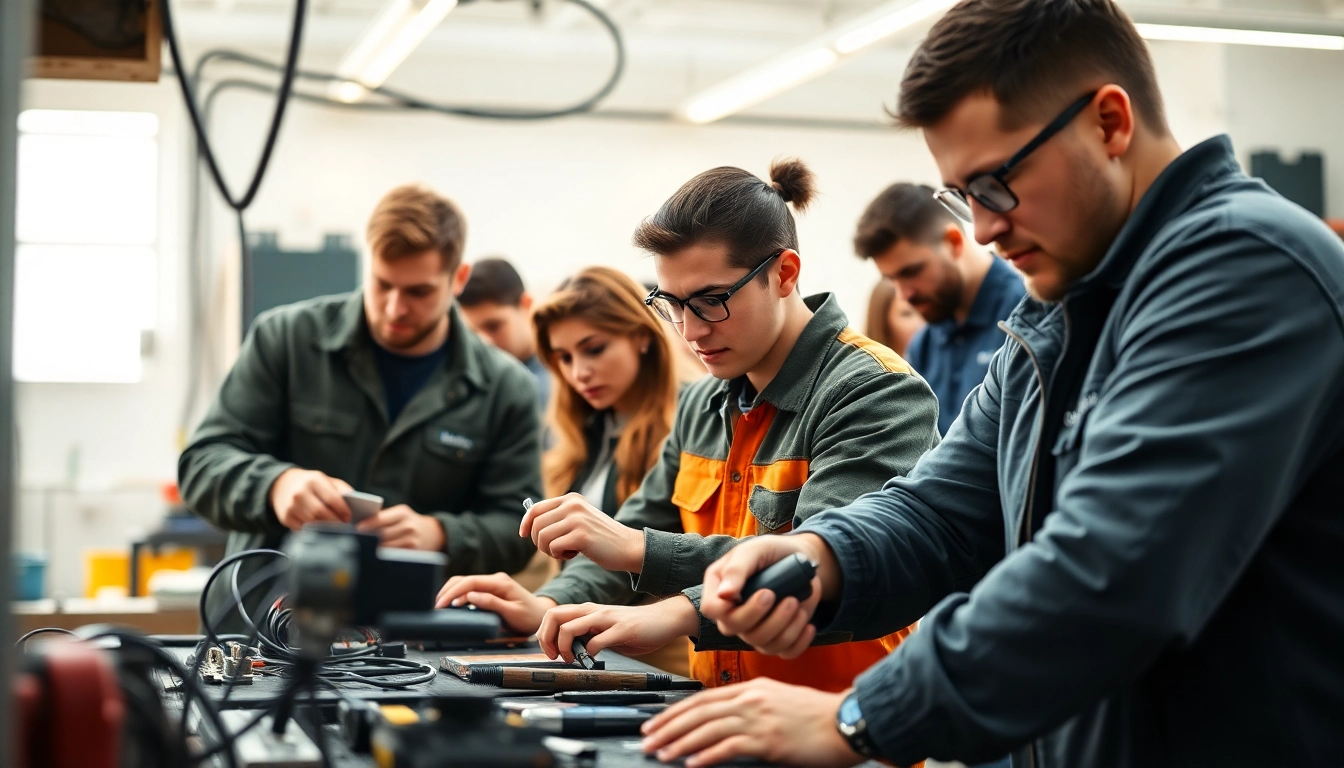Understanding Construction Education Colorado
Overview of Construction Education
Construction education encompasses a variety of programs and training designed to equip individuals with the necessary skills and knowledge to thrive in the construction industry. In Colorado, this education is particularly vital due to the state’s robust construction sector, which continues to grow year after year. This growth leads to increased demand for skilled labor in numerous construction specialties, including general contracting, electrical work, plumbing, and more. To meet this demand, educational institutions in Colorado offer diverse training programs, both theoretical and practical, that bridge the gap between classroom education and real-world application.
Key Benefits of Construction Education Colorado
Investing in construction education colorado provides several notable advantages:
- Skill Development: Learners gain essential competencies that are highly sought after in the construction field, thus enhancing their employability.
- Networking Opportunities: Students often meet industry professionals during their studies, facilitating connections that can lead to internships and job placements.
- Safety Training: A significant focus is placed on safety standards and regulations, which are crucial for maintaining a safe working environment on construction sites.
- Access to Resources: Educational institutions provide access to advanced tools, resources, and learning materials, which can be instrumental in enhancing practical skills.
Types of Programs Available
Colorado offers various programs tailored to different levels of experience and career goals, including:
- Certificate Programs: Short-term certificates that focus on specific construction skills, such as carpentry, electrical systems, and plumbing.
- Associate Degrees: Two-year programs that provide a broader educational experience and often include both technical and general education coursework.
- Bachelor’s Degrees: Four-year degrees that delve into more advanced topics such as construction management, engineering, and architecture.
- Apprenticeship Programs: Programs that combine hands-on training with classroom instruction, allowing students to earn while they learn.
Core Areas of Focus in Construction Education
Technical Skills Development
Technical skills are at the heart of construction education. Programs emphasize hands-on training in various trades, ensuring that students become proficient in tasks like reading blueprints, using power tools, and applying different construction techniques. Workshops and labs are often integral parts of the curriculum, providing students with the opportunity to practice their skills in a controlled environment.
Project Management Essentials
Beyond technical skills, understanding project management is crucial for anyone looking to advance in the construction field. Construction education programs in Colorado include courses on project planning, cost estimation, scheduling, and resource management. Students learn how to coordinate various elements of a construction project, ensuring that deadlines and budgets are met while maintaining quality standards.
Safety and Compliance Training
Safety is paramount in construction, and education programs emphasize compliance with local, state, and federal regulations. Students are trained in hazard recognition, risk assessment, and emergency response, ensuring they can maintain a safe working environment. Certifications in safety protocols, such as OSHA training, are often integrated into the curriculum, enhancing a student’s qualifications in the job market.
Choosing the Right Construction Education Program
Evaluating Accreditation and Certification
When selecting a construction education program, it is important to consider accreditation status. Accredited programs meet established educational standards and provide a quality education that employers recognize. Additionally, obtaining certifications from reputable organizations can set graduates apart in a competitive job market, demonstrating a commitment to professional development.
Matching Your Career Goals
Potential students should reflect on their career aspirations when choosing a construction education program. Whether it’s becoming a skilled trade worker or pursuing a managerial role, aligning educational choices with career goals ensures that graduates receive the education that best prepares them for their intended path. Career counseling services at educational institutions can provide valuable insights and guidance in this process.
Online vs. In-Person Learning
The choice between online and in-person learning depends on individual learning styles and circumstances. Online programs offer flexibility, allowing students to balance education with work or other commitments. However, in-person programs provide hands-on experience that is critical in construction fields. Evaluating the pros and cons of each can help prospective students make informed decisions that suit their lives and learning preferences.
Innovative Teaching Methods in Construction Education
Hands-On Learning Experiences
Hands-on learning is a cornerstone of effective construction education. Many programs utilize simulations and real-life projects, giving students firsthand experience in applying their knowledge. Activities such as building mock structures, conducting site analysis, and collaborating on group projects ensure that students are prepared to face the challenges of real-world construction environments.
Utilizing Technology in the Classroom
As technology evolves, so does construction education. Incorporating technologies such as Building Information Modeling (BIM), drone surveying, and project management software prepares students for a modern workforce. These tools not only enhance learning but also promote efficiency and accuracy in construction processes.
Collaboration with Industry Professionals
Many educational institutions partner with industry leaders to enhance their curricula. Guest lectures, industry workshops, and internship opportunities with construction firms allow students to learn directly from experienced professionals. These collaborations provide students with insights into current industry trends and practices, enriching their training and networking opportunities.
Measuring Success in Construction Education
Key Performance Metrics
Evaluating the success of construction education programs can be achieved through various performance metrics. These may include graduation rates, job placement statistics, and student satisfaction surveys. Monitoring these metrics helps institutions refine their programs and ensure they are effectively meeting the needs of students and the industry.
Tracking Graduates’ Career Progression
Following graduates into their careers provides valuable feedback on the effectiveness of educational training. Alumni tracking systems can show how well graduates are doing in the job market, what positions they hold, and their continued educational pursuits. This data is essential for continuous improvement in construction education.
Feedback from Students and Employers
Soliciting feedback from both students and employers allows educational institutions to assess their training’s relevance and quality. Employers can provide insights into the skills and competencies they value most, while students can highlight areas of the curriculum that may need enhancements. This collaborative approach fosters a dynamic learning environment that responds to evolving industry needs.



